Despite all the rumors, gossip, and worry from Star Wars fans on all sides, it turns out that Solo: A Star Wars Story is… surprisingly good. (Now, If only we could say the same for the recent trilogy…)
Solo has an uphill battle to fight, for several reasons. Given that it followed The Last Jedi by just five months, Solo needs to justify its existence, both as a “what, so soon?” entry from the neverending Disney content machine and as a stand-alone story within the Star Wars universe.
The good news?
First, after original directors Phil Lord and Christopher Miller were fired, Ron Howard stepped in and delivered a movie that moves fast, looks good, and makes sense (at least, as much sense as any Star Wars movie ever does).
And second, actor Alden Ehrenreich succeeds at the thankless job of embodying the spirit of Harrison Ford.
Now, to be completely honest, Ehrenreich’s opportunity in Solo is kind of a no-win situation.
If he did well, critics could still dismiss his performance by saying he was just aping Ford. But if he did poorly, he’d be derided as a pale Harrison Ford imitation. Either way, with minimal freedom to bring his own instincts to the role, he stood to lose more than he had to gain (except for money and fame, but…)
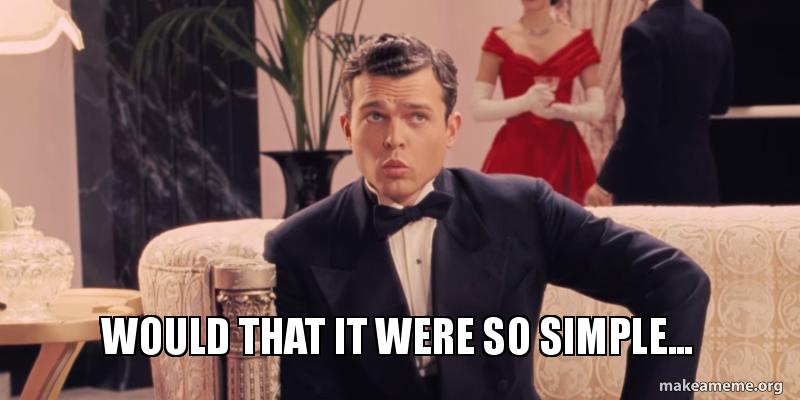
Alden Ehrenreich in the Coen Brothers’ “Hail Caesar!”
When it comes to updating (or, in this case, backdating) a beloved character, any new actor has a steep challenge.
There’s a fine line to walk between honoring the essence of another actor’s portrayal of a character and honoring the essence of the character himself.
What’s the difference? Well, that’s easier to define once multiple actors have played the same role — but in the case of Han Solo, Ehrenreich only had one legendary point of comparison.
From Indiana Jones to James Bond: Which Traits Define a Character?
To be fair, Ehrenreich can’t possibly channel Ford’s swagger, bluster, and boyish charm — or his naturally deeper voice — because those are traits that Ford had the freedom to instill organically while building Han Solo from scratch.
Instead, Ehrenreich and Howard key in on the recognizable behavioral traits that identify Han Solo in practice: fast-talking hucksterism, a burning drive to be renowned and respected, and the unavoidable tendency to get himself in over his head.
So no, Alden Ehrenreich is not Harrison Ford. But in Solo, he’s definitely a recognizable Han.
What’s more important is what else Howard and Ehrenreich got right about Solo:
Deep down, he’s actually us.
Why Han Solo Was Never Just a Sidekick
One reason Ford’s original portrayal of Han Solo made such a strong impression in 1977 is because he inverted several classic hero tropes.
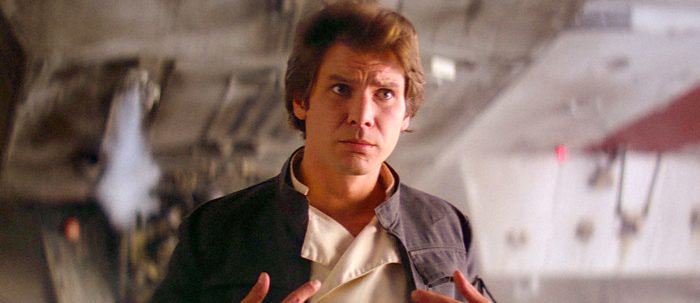
Honest? As honest as the day is long.
Unlike the suave sophistication of Cary Grant or the laid-back hubris of Burt Reynolds, Harrison Ford’s Han Solo isn’t even sure he wants to be a hero.
He tries to look cool, calm, and collected… but he’s often revealed as bumbling, ill-prepared, and in over his head. Thanks to Ford’s paradoxical wide-eyed squint and clenched jaw, he played Solo like a flim-flam man who’s perpetually worried that he’s about to get busted. He’s not quite sure what you’ve heard about him, but he can assure you that none of it was true… and if it is true, hang on a second because he can explain.
These are all the tics and traits of a comedy sidekick — and that’s mostly what George Lucas needed Han Solo to be in Star Wars, as a counterbalance to the pure heroism of Luke.
But where Lucas and Ford turned Solo into an icon was by making him exceptional at three crucially important skills that no other main character could do: being a phenomenal pilot, an expert gunslinger, and talking his way out of (and, often, right back into) all kinds of trouble.
Without those skills, Han Solo would be just another comedy sidekick to a noble and admired hero. But by giving Han critical skills on par with Luke, plus a manic unpredictable energy that bounces between childish and heroic, Solo rises above his function in the story and becomes something that Star Wars desperately needed: a relatable mirror for the audience’s own aspirational self-image.
(Now, would Han have been so popular if Star Wars: A New Hope had been released with the film’s original edit? That’s another story entirely…)
Han Solo Redefined the Potential of the Antihero
Sure, we like Luke Skywalker because he’s the hero.
But we love Han Solo because he’s the antihero.
What’s the difference?
Heroes have to do good by honoring their virtue, but antiheroes choose to do good by honoring their nature.
For a clear comparison, take Casablanca.
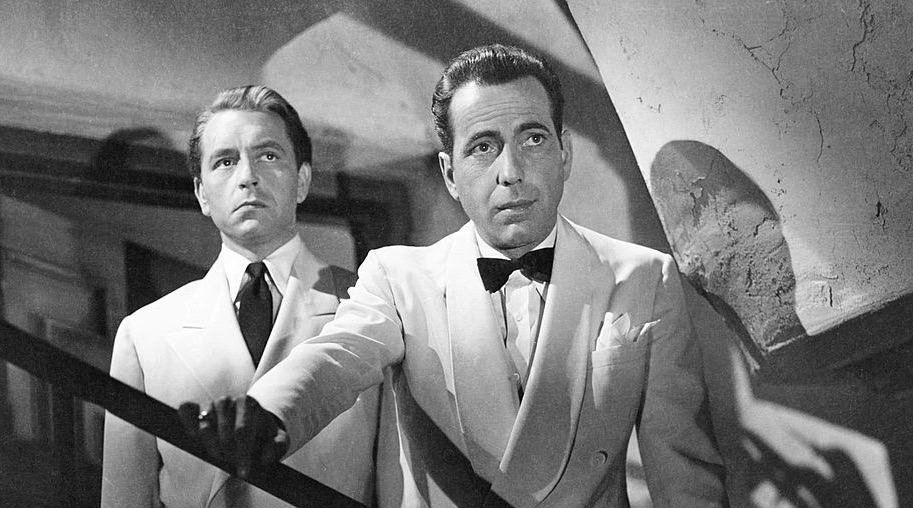
Everyone comes to Rick’s…
Although the story is about Rick Blaine (Humphrey Bogart), the hero is actually Victor Laszlo (Paul Henreid). It’s Laszlo who’s been actively opposing the Nazis, leading the resistance, and who is desperately trying to get to America so he can continue the fight — he’s basically nonstop virtue.
Rick Blaine, on the other hand, runs a nightclub with illegal gambling and makes it his business to stay out of other people’s affairs. He doesn’t have to do anything. In fact, his life would be much easier if he didn’t do anything to help Laszlo oppose the Nazis — especially because Laszlo’s arrest would let Rick and Ilsa reunite and live happily ever after.
Except it wouldn’t.
Because, by nature, Rick is a freedom fighter too.
Although he declares early on that “I stick my neck out for nobody,” his cool disinterest is a defensive front. By the end of the film Rick rejects his own happy ending in pursuit of something even more meaningful: his long-buried ideals. When push comes to shove, Rick can’t deny his true nature — he’s a good guy in a bad situation who just hadn’t found anything worth fighting for until Laszlo and Ilsa came along.
(For the record, that also makes Captain Louis Renault (Claude Rains) an antihero too. No wonder Casablanca remains so popular almost 80 years later; it gives us two redemptions for the price of one.)
We see this same dichotomy of character in Star Wars.
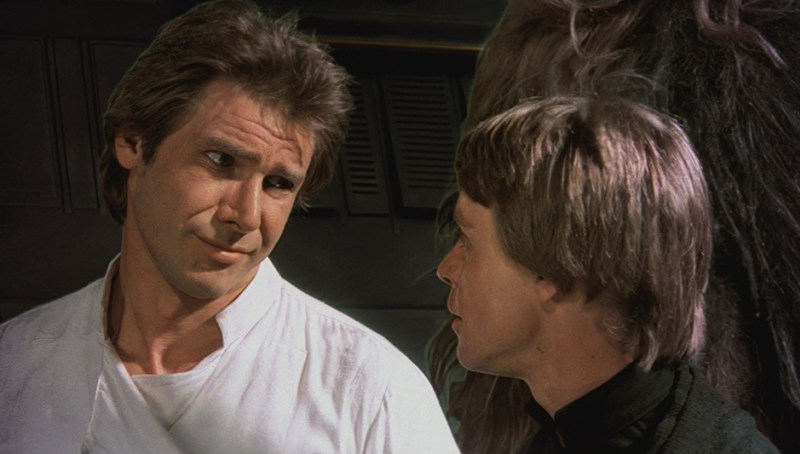
Here’s looking at you, kid…
In A New Hope, Luke is obliged to become the hero. It’s his destiny, and the movie is about his journey from a farm on Tatooine to the destruction of Darth Vader’s Death Star.
But the reason Han Solo resonates with audiences is because he didn’t have to help the Rebellion; he chose to — and at the last possible second, too. His choice is made more powerful because we’ve already seen him be an argumentative, hot-headed rogue who shoots first and only looks out for himself.
When push comes to shove, Han swoops in to help Luke save the day. Why? Because Han can’t deny his own nature: he’s a good guy in a bad galaxy who just never found the right thing to fight for until Luke and Leia came along.
Or at least that’s what we thought.
But in Solo, we now see that Han has had multiple chances to be the good guy in his life, long before Ben Kenobi ever made him an offer in the Mos Eisley cantina.
For a deeper dive into this topic, check out: Why We Replaced Heroes with Antiheroes
How Solo Adds Layers to a Legendary Character
Solo takes place in the years before the Empire has consolidated power across the galaxy.
As such, the stakes in Solo are smaller and more personal than most Star Wars movies — and that’s a good thing.
No one here is trying to blow up a Death Star or detonate a fleet of Star Destroyers (yet). Instead, they’re trying to pull off a heist, complete a double-cross (or two… or three…), and pay off a towering debt. Mostly, they’re all trying to make up for past mistakes.
If you’re going to tell the story of how an iconic character grew up to become the personality we love, you could do a lot worse than Solo ‘s approach, which is to reveal the inciting incident that forged Han’s worldview, motivated his future choices, and burdened him with a guilt he can never shake or repair.
While the bulk of Solo is essentially fluff, the consistency with which it explores Han’s dueling instincts — to fight or flee, to take a risk or play it safe, to be the hero or the outlaw — adds new layers to Ford’s depiction in the character’s later years.
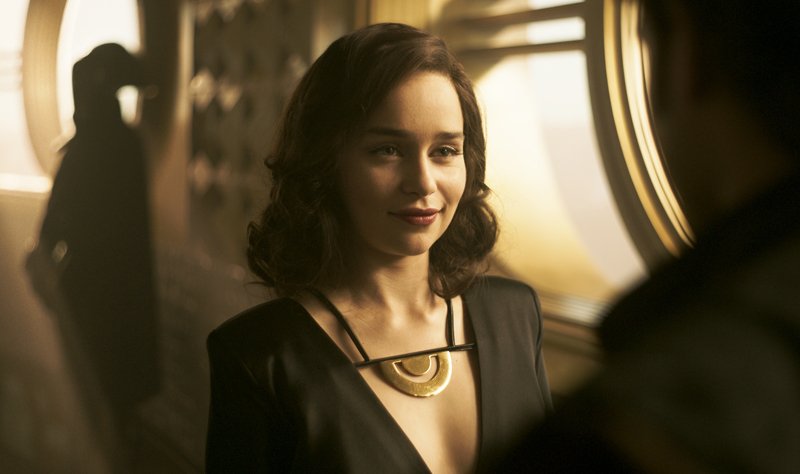
Of all the gin joints in all the world…
When we realize Han had a first love, and a first shame, it colors our perception of Ford’s man-child version of the character. Seeing him as an estranged 70-something smuggler in The Force Awakens was sobering and disillusioning; seeing him as a 20-something hustler who should have had numerous chances to cash out of this life before the events of A New Hope now makes Solo’s aimless twilight years seem inevitable.
Solo also enriches the relationships between Han and Lando, and Han and Chewbacca.
Because Lando and Chewbacca are, in a way, variations on Han as a character — Lando is also a roguish hustler, and Chewie is also a flyboy outlaw — Solo wisely contrasts their motivations. Chewie yearns to save his tribe from oppression… but he also feels drawn to protect his newly adopted family of pirate smugglers. And Lando claims he’s only in it for the money… but it turns out he has almost as many deeply buried emotions as he has capes.
Finally, by introducing a third act plot twist or two (which I won’t spoil here), Solo also does one more smart thing:
It reminds us that while the fate of an entire galaxy may end up in the hands of a chosen savior, the practical opportunity to change the world for the better is often in our own hands, every day.
In the End…
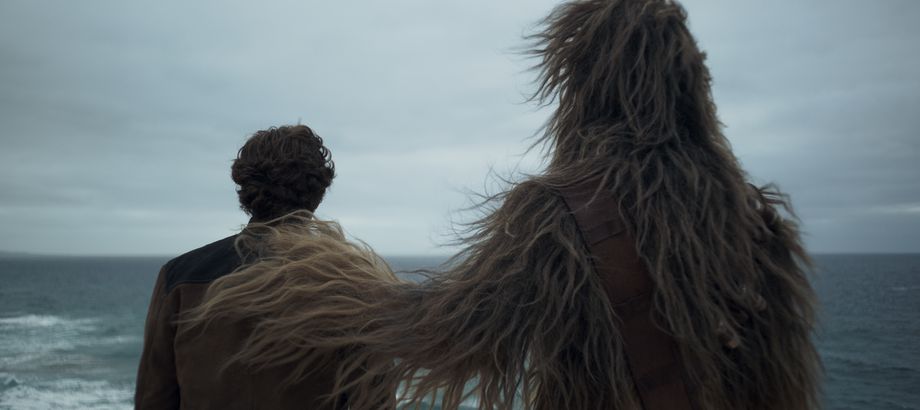
I think this is the beginning of a beautiful friendship
Is Solo a *necessary* addition to the Star Wars canon?
Personally, I don’t think so. But I may be biased, because I’m not a fan of prequels in general. I love the idea of unseen backstories, rather then being inundated with inside details.
(Besides, the original Han Solo novels by Brian Daley already established Han’s pre-A New Hope life before they were decanonized after Disney bought Lucasfilm, but that’s another story…)
Necessity aside, let’s be honest: there’s a reason we got Solo instead of a Young Luke movie.
Very few of us want to grow up to become stoic, celibate jedi meditating alone in a swamp.
But everyone wants to shoot first, look cool, crack a smile, and get the girl (or guy).
We love Han Solo because he represents the person we hope we would be in an emergency: the hustler who always finds a way to solve the problem, outwit the enemy, and stay alive for one more shot at fame, fortune, and fulfillment.
He’s Burt Reynolds with a blaster.
He’s Rick Blaine with a spaceship.
He’s us.
And in Solo, he continues to prove that the best Star Wars stories have nothing to do with chosen ones, good and evil, or destiny. They’re about overcoming who you think you need to be in order to become who you truly are.
If You Liked This Post…
You might also like a look at the storytelling flaw that ruined the new Star Wars trilogy, or why the “mystery box” story structure is so broken — and how to fix it.
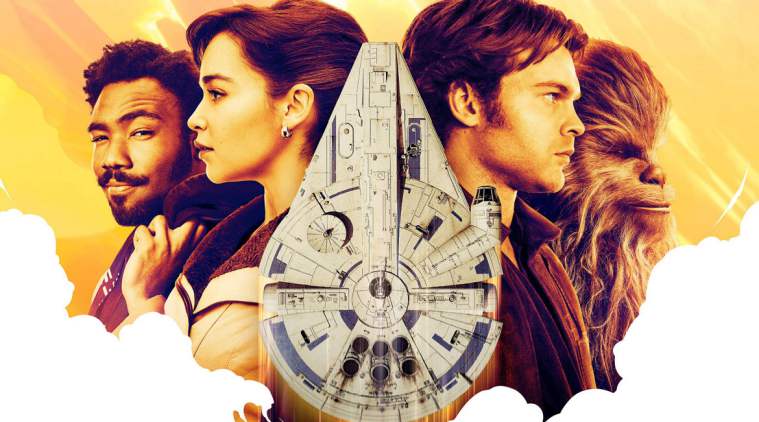
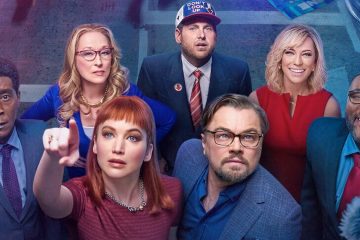

0 Comments